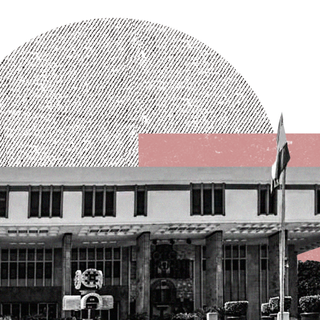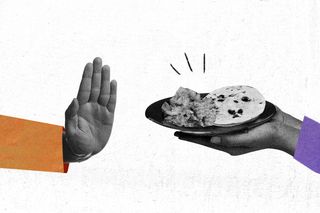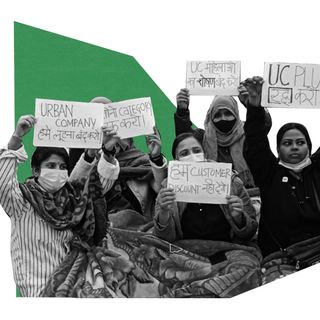
Dalit Woman Cook Fired for ‘Wrongful Appointment’ After Students Refused to Eat Her Food
Parents of the upper caste children alleged the woman was chosen as the cook by overlooking a more deserving candidate, a Brahmin.

A Dalit woman, working as a cook (“bhojan mata”) at an Uttarakhand government secondary school, was recently dismissed after upper-caste students protested and boycotted the meals served as part of the mid-day meal scheme. The woman, Sunita Devi, was appointed earlier this month; this was a job that paid Rs. 3,000 per month and was not permanent. After her first day, however, 40 out of 66 students refused to eat her food. Backed by their parents, they began bringing meals from home, Hindustan Times (HT) reported.
“On December 13 when I had joined the school, all students had eaten meals without any problem. But, the next day I was shocked when they refused to eat the food I prepared. The students have been told by their parents not to eat,” said Sunita.
Soon after, authorities dismissed Devi on grounds that her appointment wasn’t cleared by higher authorities. They cited flouting of process norms as the reason; they had an upper-caste cook placed in the interim, before formally appointing another cook.
Students have since resumed eating their meals with this temporary replacement. “We found during the inquiry that the principal of the college had failed to follow the norms in the appointment. After this, we canceled the appointment of the Dalit Bhojanmata unanimously,” R.C. Purohit, chief education officer (CEO) of Champawat district, told HT. The “norms” here purportedly refer to approval from the state’s deputy education officer (DEO).“Now, the whole process will be again conducted and the Dalit bhojanmata can again apply,” the deputy education officer (DEO) said.
The casteist nature of the incident is blatantly obvious. For one, the children and their parents complied with resuming meals from someone who was appointed as a temporary replacement to Devi. Moreover, institutional casteism has always employed process-related roadblocks to disguise prejudice on paper.
Even in 2015, attendance at a government school in Kolar plummetted because upper caste people refuse to let their children eat food prepared by Radhamma, a Dalit woman, according to an Indian Express report. In the diary Radhamma was required to maintain for mid-day meal schemes, she wrote: “No one ate today.”
The relationship between caste and food in India has always been fraught. Upper caste food snobbery has been well documented, as is the marginalization of Dalit food histories due to notions of “purity” or “pollution” associated with them. Even during the pandemic, there have been reports of people refusing to eat food cooked by Dalit women at quarantine centers.
Related on The Swaddle:
Why Deepa Mohanan Represents a Landmark Victory Against Institutional Casteism
Ironically, the mid-day meal scheme, conceptualized by former Tamil Nadu Chief Minister K. Kamraj, was meant to dissolve the inequality that persists through food. “The rules for the appointment of cooks and helpers under the [mid-day] scheme have been framed with a view to foster social equity by removing caste rules in the consumption of food. In most villages across the country, upper caste people do not eat food prepared by Dalits, or even eat with them,” The News Minute noted.
The discrimination is pervasive across the board. In 2015, Kiruba Munusamy, a Supreme Court advocate who is from a Scheduled Caste (SC) community, was fired for taking a period leave. “Back then I used to suffer from really severe migraine and menstrual cramps… one day I told my superior that I was unwell. In the evening, he called me and fired me,” she told News18. Next year, a Dalit woman Sarpanch threatened to immolate herself after she was dismissed before Independence Day on charges of corruption and “irregularities.” “They did not allow a Dalit woman to unfurl the tricolor on Independence Day in 2015. In 2016 they would again deny my right to unfurl the tricolor [at all],” she told Times of India.
Rohith Vemula’s and Dr. Payal Tadvi’s suicides also stand out as unsettling examples of institutional casteism in education, wherein Dalit students are relentlessly harassed by fellow students and face insurmountable administrative hurdles.
As is often the case with institutional casteism, a combination of being outnumbered by oppressor caste people and strong bureaucratic machinery operated in this case. It worked to push out oppressed caste people out of institutions against their will. In the present case, the president of the Parent-Teacher Association (PTA) said that the parents were happy with the administration’s inquiry and decision. “We hope all norms will be followed in the appointment of bhojanmata. Upper caste children have called off the boycott and are having midday meals as earlier,” he said. Enraged parents of the students alleged the woman was chosen as the cook by overlooking a more deserving candidate, a Brahmin.
“This kind of discrimination will alienate scheduled caste people from the society. Dalit women should be given the opportunity to serve as bhojanmata if she fulfils the norms and parents of upper-caste students must understand that it will strengthen relationship in the society,” Anita Arya, a local activist, told HT.
Rohitha Naraharisetty is a Senior Associate Editor at The Swaddle. She writes about the intersection of gender, caste, social movements, and pop culture. She can be found on Instagram at @rohitha_97 or on Twitter at @romimacaronii.
Related


Urban Company Suing Women Gig Workers for Protesting Shows How Women’s Labor Is Undervalued
